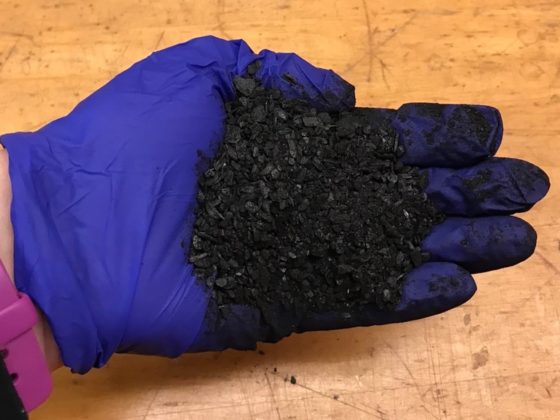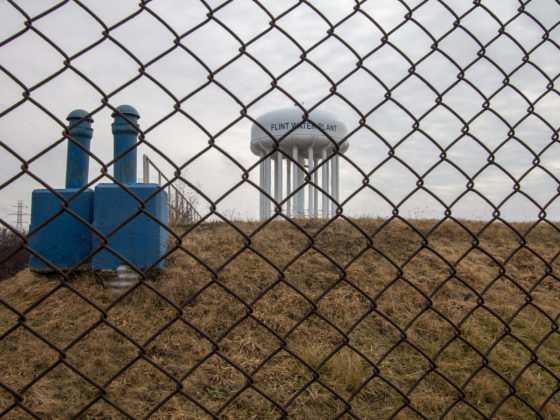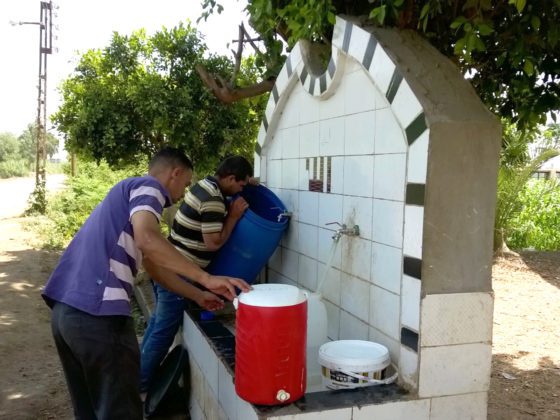Part of a Special Series: Water & the Virus
The coronavirus and policy responses of lockdowns and social distancing are bringing the world economy to a halt. We will use this water blog as a space in which to gain some insights into how the water sector is affected—as the crisis continues, we will talk to people who have their fingers on its pulse, and report back. To be sure, the story is still evolving, so the posts here are snapshots and midstream assessments, not the final analysis.
We contacted Ruffner Page, CEO and president of McWane, Inc., and a Darden alumnus (MBA 1986), who has previously spoken at UVA about the nation’s infrastructure challenges in light of the Flint crisis. With 25 facilities in the United States and around the world, McWane, Inc. supplies waterworks with ductile pipes and other supplies. How McWane, Inc. experiences the coronavirus crisis, and Ruffner’s expectations of how it will evolve and its likely effects on the water industry, may give a sense of what to expect. Perhaps, more than ever, a national plan to invest in and upgrade our water infrastructure is in order.
How is the coronavirus affecting the operation of your company?
Without the products we manufacture, our water, wastewater, power, and other infrastructure would be in jeopardy, putting the lives, health, and safety of our nation at risk. As a result, the Department of Homeland Security has designated our industry a critical infrastructure sector, and our team members as “Essential Critical Infrastructure Workers,” necessary for ensuring the continuity of functions critical to public health and safety, as well as economic and national security. While we have continued to operate almost all of our plants, we have implemented comprehensive guidelines across the company to protect the health and safety of our team members, their families, and the communities where we operate. These guidelines, based upon Occupational Safety and Health Administration (OSHA) and Centers for Disease Control and Prevention (CDC) guidance, include increased cleaning and disinfecting; the use of masks and other personal protection equipment; monitoring of team members for symptoms; social distancing; and limiting visitors to only those considered business critical.
That said, two of our plants were temporarily idled during March and April due to local conditions and requirements. McWane Ductile New Jersey, one of our three ductile iron pipe plants, stopped production for four weeks. There were a small number of positive coronavirus cases at the plant, and given the location of the plant in New Jersey and its close proximity to New York City, two “hotspot” areas, we decided to temporarily halt operations to safeguard team members, their families, and the community. In California, we reduced production at our ABI plant in response to several local orders that initially created uncertainty about our permission to operate.
Water infrastructure is essential for any society to function, and the US water infrastructure has been in need of a major upgrade for some time. Has the coronavirus affected the demand for your products? Or, is it your sense that there is no change in the scheduled maintenance and upgrades of the country’s water infrastructure?
We are currently seeing a downturn in water infrastructure projects in areas hard hit by the coronavirus, but we are optimistic that as these areas begin to return to more normal operations, the projects will restart. On a longer-term basis, the economic slowdown will reduce local tax revenues, and many utilities are starting to see a decline in revenues because customers are not paying their water and sewer bills, while at the same time utilities are under pressure to continue service to those customers in light of their economic hardships. This dynamic will squeeze the finances of utilities and impair their ability to maintain and operate their systems and to fund infrastructure upgrades. We also expect the economic downturn to negatively impact the housing construction market, which will also negatively impact volumes at suppliers of components of water infrastructure.
When the Trump administration came into office, you were hopeful that the administration would plan much-needed water infrastructure spending. To pull the economy out of the recession, additional government spending will likely be needed. If the focus is on water infrastructure, what aspects of it would you advocate the government to focus on?
Prior to the current COVID-19 crisis, our nation’s drinking water infrastructure was already woefully underfunded and in need of significant investments. The Environmental Protection Agency (EPA) estimates national drinking water and wastewater needs to total more than $740 billion. The current crisis has exacerbated these problems, as water utilities are facing decreased revenue from individuals who cannot pay their bills and from reduced industrial and business usage. These fiscal impacts occur at a time when clean drinking water is needed more than ever. Handwashing is essential to preventing the spread of COVID-19, but too many Americans did not have access to drinking water prior to this crisis. Clean drinking water is essential to every American, especially our frontline health care and other workers who are bravely saving lives and helping to reduce the spread of COVID-19. Three critical areas the administration must focus on as it looks at water infrastructure investment are resiliency, cost effectiveness, and integration of new technology.
The crisis is not yet over. Do you see ways in which the coronavirus has affected the sector in a lasting way, or is your sense that, once this is over, there will not be many changes?
The pandemic is putting tremendous financial pressure on the nation’s water utilities, as they continue providing service even as many customers aren’t paying their bills. Among the nation’s water industry groups, there’s been a lot of recent discussion about partnerships/consolidations of water utilities, but even more about the need for financial relief.
*Feature photo credit: Ductile Iron Pipe Research Association





